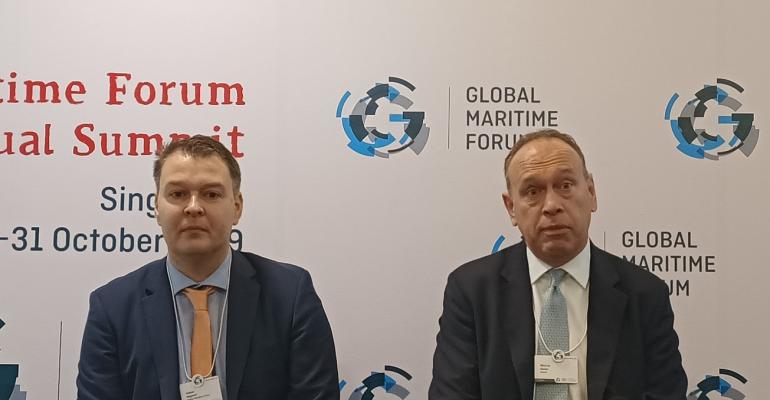The report launched at the Global Maritime Forum on Wednesday showed that respondents from 46 countries highlighted: ‘decarbonization of shipping’, ‘new environmental regulation’, ‘societal demands for sustainability’, and ‘failure of climate-change mitigation and adoption as the four of the top 10 issues that would impact the industry.
Decarbonisation and getting to zero is one of the key themes of the Global Maritime Forum but the report found that preparedness to reach these goals was seen as low.
“When it comes to decarbonization, the maritime sector must play an even larger role in addressing climate change and the sector is a key stakeholder when it comes to both the causes and solutions related to the issue,” said Peter Stokes, chair of the Global Maritime Forum.
In a deep dive look at ‘getting to zero’ availability of zero carbon vessels and fuels was seen a major barrier to shipping’s decarbonisation. Both were seen as having a relatively high impact and likelihood of happening in the next 10 years, but also had the lowest preparedness rating.
“Commercially viable zero emission vessels powered by zero emission fuels must start entering the global fleet by 2030 and their numbers need to be radically scaled through the 2030s and 2040s if international shipping is to meet the target of reducing greenhouse gas emissions by at least 50% by 2050,” said Johannah Christensen, Managing Director, Head of Projects & Programmes at the Global Maritime Forum.
“This represents an unparalleled challenge, but it can be done through close collaboration and deliberate collective action between the maritime industry, the energy sector, the financial sector, governments and IGOs.”
A key part of the challenge is the inter-related nature of the different elements. Speaking to a media briefing at the Global Maritime Forum on Wednesday morning Kasper Soegaard, head of research for the forum said: “It’s not a great picture, all these issues are related. If we don’t have zero emission fuels we don’t have zero vessels.”
Soegaard said regulation is seen as key driver but the question was, “Will the regulations be put in place that will actually drive this?”
The report was published by the Global Maritime Forum; Marsh JLT Specialty, a division of global insurance broker and risk adviser Marsh; and the International Union of Marine Insurance (IUMI).

